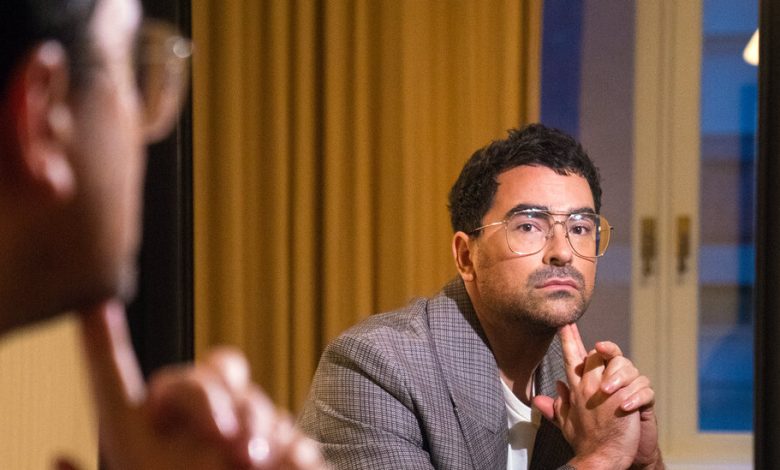With ‘Good Grief,’ Daniel Levy Goes From Laughs to Tears

“Good Grief” might have made an alternate name for “Schitt’s Creek,” the multi-Emmy-winning comedy Daniel Levy created and starred in with his father, Eugene. But unlike that series, which mined comedy from the dynamics of a family in financial crisis, Levy’s latest project, a drama, explores how loss affects a close-knit friend group in their late 30s.
The film, streaming on Netflix, is the younger Levy’s directorial debut (he also wrote the film, starred in it and was a producer). Set in London, it follows Levy’s character as he travels to Paris with his best friends (Ruth Negga and Himesh Patel) after the recent deaths of his mother and husband (Luke Evans). “Good Grief” is the first release in a deal he signed with Netflix.
On a video call last month, Levy, 40, traced the film’s inception to the death of his grandmother during the pandemic, a period that overwhelmed him with its “collective grief.”
“I hadn’t experienced a lot of loss in my life,” he said. “My grandfather had passed away around 10 years prior, but, experiencing grief as an adult, I found myself very confused about what I was feeling. My biggest fear was that somehow I wasn’t doing it properly. That confusion forced me to start writing down my feelings, and I realized that there was an interesting story in the exploration of trying to figure out what grief means.”
Here are edited excerpts from our conversation.
How did you think to add another layer of grief to this character who’s already lost his mother?
Part of that is just trying to find a compelling throughline for the sake of telling an entertaining story. I knew, coming out of “Schitt’s Creek,” that I wanted to tell a story about friendship. As a person who’s been single for quite some time, your friends are the great loves of your life, so I knew going into this that I wanted the friendships to be front and center.
Was it different to write about friends rather than family?
I had to pull from a different source. A lot of these relationships are based on my own. I look back on my 30s as one of the great decades in my relationship to my friends. I think the older we get, the more complicated our friendships are. So often in movies, friends are on the sidelines, cheering on the central characters as they are on a journey for love. To invert that expectation and make the great love story about friendship was important for me, because that’s the life I’m living right now.
Why did you decide to set the story abroad, in London?
I like the idea of someone who lives in a place they call home, but is not where they’re from. I knew that I wanted the character to be a fish out of water, and build a world around him which felt potentially isolating. When you live in a place that is not your home, the relationships you form are so important. I needed there to be a long history for him, and loved this idea that he came for school and chose to stay; it felt like the rich back story of a character who I think is quite an avoidant.
I lived there for a chunk of time, in my early 20s. I was getting over a weird breakup and got to “Eat, Pray, Love” my way through England. The experience was very character-building, and when you have those really formative moments somewhere, you will always have that desire to go back. It’s also a beautiful place to set a movie.
Why did you decide to make a drama?
I wanted to write something for myself and wanted to do something that was slightly more emotional, as a challenge. I think my desire as an actor led me, as a writer, down a path of exploring something more dramatic. We did 80 episodes of a comedy and, as an actor, you want to try something new. I don’t love that actors get pigeonholed when they have success in one particular area. I would kill for these kinds of parts coming to me more often, and, to be honest, I had to write it for myself, you know? I wanted the work and I wanted the challenge.
When did you cast yourself as director?
As soon as I wrote the script. I had such a specific vision for it by the time I wrote the last page that I knew that I had to direct it because I knew that if anyone else came in to direct, I would be buzzing around them like a really annoying mosquito. So it was a practical thing, and I’d also directed several episodes of my TV show and felt like I was ready. I don’t want to say easy, because it wasn’t easy, but it felt comfortable.




